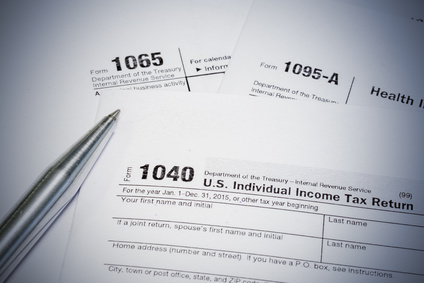
IRS! The name itself is enough to send shivers down the spine of American taxpayers. The federal tax collecting body uses various methods such as wage garnishment, seizing personal assets, and placing liens on property, to recover tax debts. It is often cast in bad light and taxpayers often consider its agents to be government bullies. The IRS, however, only takes such extreme measures after exhausting all other options, and is often willing to work with taxpayers to help them settle their tax debts.
In this post, we talk about a number of tax relief methods taxpayers can use to settle their debts at lesser amounts than what they owe. Take a look.
1. Offer in Compromise
Offer in compromise is one of the many IRS relief methods that eligible taxpayers can use to reduce and settle outstanding tax payments. To qualify for this IRS tax relief help, you must have filed your tax returns and honored the required estimated tax payments for that quarter. In most cases, the amount offered by a taxpayer must be equal to or greater than the reasonable collection potential, which includes the amount that can be obtained by selling their assets. The IRS agrees to an OIC on three grounds:
- There is a confusion regarding the lawful outstanding amount.
- The value of assets you own is less than the amount you owe.
- The payment (in full) would create economic hardships for you.
Tax relief attorney at the Law offices of Nick Nemeth has years of experience in negotiating offer in compromise agreements for taxpayers and suggesting ways to secure tax debt relief under the program.
2. “Not Currently Collectible” Program
Taxpayers who have little or no money after paying rent, utilities, buying groceries, and other essential living expenses, can apply for relaxations. The IRS declares such individuals as “Not currently collectible” and stops all efforts to recover the outstanding tax amount. To inform creditors about the amount owed, the IRS may file a Notice of Federal Tax lien that will reflect in the taxpayer’s credit report. The period that the taxpayer stays on list will primarily depend on how quickly their income situation improves. At the Law offices of Nick Nemeth, we know how the “Not Currently Collectible” program works and have helped many taxpayers qualify to receive benefits under the program.
3.Innocent Spouse Tax relief
It is common for married couples to file their taxes jointly. Many times, however, one of the spouses forgets filing their income, which can increase the tax liabilities for their partner. Such taxpayers can request Innocent Spouse Relief. If you are eligible, the IRS will not pursue you for penalties and interests. To access this benefit, you must prove that you were unaware of the understatement (that arose due to your spouse’s failure to report their income, or claiming improper deductions) at the time of signing the tax return. The Law offices of Nick Nemeth is a team of experienced tax relief professionals that understand how Innocent Spouse Tax Relief works, and provide comprehensive support to taxpayers seeking exemption under the program.
4. Partial Payment Installment Agreement
Taxpayers with a lower reasonable collection potential than their outstanding tax liabilities can seek relief under the PPIA program. The IRS reduces the total payable for eligible individuals that they are required to pay through a series of monthly instalments. To qualify you must fulfill these criteria:
- Must have filed and paid taxes for previous years in full.
- The outstanding amount must be more than $ 10,000 (including penalties, and interest).
- Should not have been in bankruptcy or accepted an offer in compromise.
- Must not own assets. Taxpayers who have non-marketable assets, insufficient or inaccessible assets (not enough to get a loan), can also qualify.
5. Abatement
The IRS levies penalties for every day past your taxes’ due date. Penalties, on an average, account for 15-25 percent of the total tax balance. Taxpayers availing this benefit will be exempt from paying late fines and penalties but will have to pay the principal amount. To qualify, you must prove that certain unavoidable circumstances, such as going through a divorce, a death in family, severe illness, or unemployment, forced you to default on your payments.
Summing up!
Taxpayers looking to use these programs need the services of a qualified and experienced IRS tax relief lawyer who can guide them at every step of preparing and presenting their case. The Law Offices of Nick Nemeth provides tax debt relief services, including helping taxpayers complete the necessary paperwork and negotiate with the IRS on their behalf. To learn more about our services, fill out our contact form or call us at (972) 426-2553 to get a free special report.


